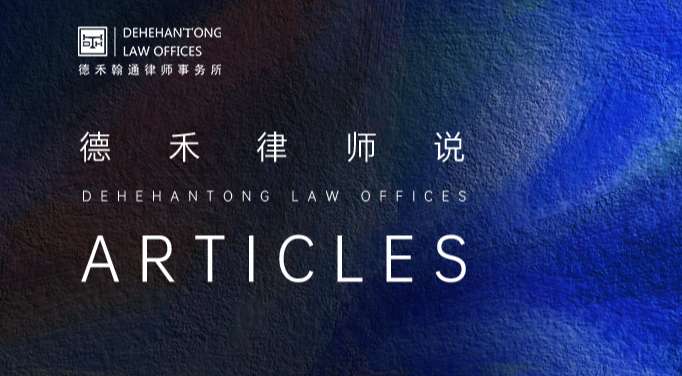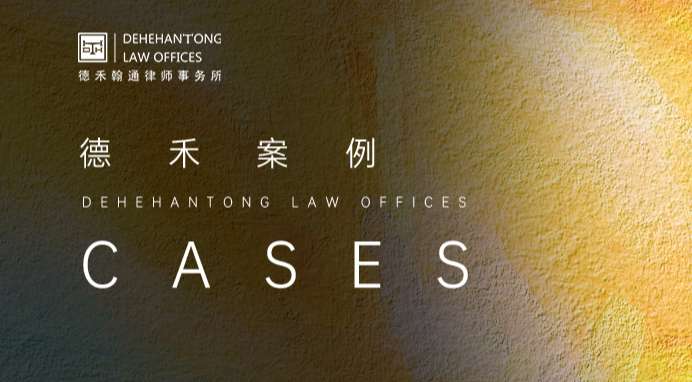The plaintiff's shareholding requirements in a derivative lawsuit of a California limited liability company
When the rights and interests of a company are infringed upon and the company has not filed a lawsuit, shareholders (including members of a limited liability company) have the right to file a lawsuit on behalf of the company in accordance with the law. This article mainly discusses the two types of shareholding requirements that members of a Limited Liability Company (LLC) need to meet in the process of filing lawsuits on behalf of the company under the California Company law.
01 Contemporaneous ownership requirement
Meanwhile, the shareholding requirements can be found in Section 17709.02 of the California Revised Uniform Limited Liability Company Act (hereinafter referred to as the "Limited Liability Company Act"). The plaintiff must have been a member of the LLC at the time of the occurrence of the dispute or whose interests were obtained by legal means from a person who was a member of the company at the time of the occurrence of the dispute. (by Operation of Law, which is different from through contracts/agreements, usually includes inheritance and division of marital property, etc.)
Shareholding requirements may be exempted at the discretion of the court in accordance with the law. To obtain such exemptions, the plaintiff must provide the court with preliminary evidence that the following five circumstances exist simultaneously:
There is strong preliminary evidence indicating that the lawsuit is reasonable and valid
2. No other similar lawsuits have been filed or may be filed
3. The plaintiff obtained the membership rights before it became aware of the disputed matter or before the disputed matter was publicly disclosed
4. If this lawsuit is not permitted, the defendant shall retain the improper gains obtained as a result of his intentional breach of fiduciary duty
5. The requested relief will not cause the limited liability company or its members to obtain improper benefits
02 Continuous ownership requirement
Compared with the simultaneous shareholding requirement, the continuous shareholding requirement is more complex.
The requirement for continuous shareholding was not written into California's Limited Liability Company Act but was confirmed in the form of a case law. And first of all, it was confirmed within the organizational form of Corporation.
Representative litigation against a Corporation is stipulated in Section 800 of the California Corporation Code. Clause b stipulates that a lawsuit cannot be initiated (instituted) or maintained (maintained) unless the requirement for continuous shareholding is met and the plaintiff has informed the board of directors of the company of the corresponding information.
In the case of Grosset v. Wenaas[1] ruled by the California Supreme Court in February 2008, the target company, JNI Corporation, was registered in Delaware, USA, but its headquarters was located in California. The main directors and other members of the company resided in California, and the transactions involved in the derivative lawsuit also occurred in California. Therefore, in this case, there is a dispute over whether the law of California or the law of Delaware should be applied.
The Delaware court has confirmed through case law that shareholders filing representative lawsuits must meet the continuing shareholding requirement [2], a point that was not disputed in the Grosset v. Wenaas case either. The Supreme Court of California pointed out that if the requirements for continuing shareholding under California law and Delaware law in this case are inconsistent, the law applicable in this case must be clearly defined. However, if the views of California law and Delaware law on this issue are consistent, then the problem of legal application will not need to be analyzed further.
The Supreme Court of California overturned the previous cases in Heckmann v. Ahmanson and Gaillard v. Natomas Co. The decision was made to maintain that, in light of the legal text, the term (maintained) could be interpreted as having the meaning of a continuing shareholding requirement. Such interpretations, on the one hand, are consistent with the requirements of other states, and on the other hand, they are also in line with the essence of shareholder representative litigation itself [3].
In the case of Sirott v. Superior Court[4] of the California District Court of Appeals in May 2022, the court held that the analysis of the continuing shareholding requirements in the Grosset v. Wenaas case could be applied to LLCS. Because the relevant provisions of the two are almost exactly the same. From the perspective of general rules, representative litigation initiated on behalf of an LLC should be subject to the same legal principles as representative litigation initiated on behalf of a Corporation. The plaintiff in this case contends that the analysis of Grosset should not be applied, on the grounds that "corporations and LLCS are different entities and therefore subject to different rules." The court held that although not all laws applicable to corporations apply to LLCS, the plaintiff did not point out any substantial differences between the two forms of business that could support reasons for different interpretations of essentially the same language.
At this point, the requirement for continuous shareholding has been officially applied to LLCS through the case method.
03 Exemption from the requirement of continuous shareholding
Exemption cannot be granted based on the Limited Liability Company Law
Furthermore, unlike the simultaneous shareholding requirement, the continuous shareholding requirement cannot be exempted based on Section 17709.02 of the Limited Liability Company Law. In the aforementioned case of Sirott v. Superior Court, the first-instance court of Contra Costa County held that it had the authority to grant exemptions to plaintiffs who did not meet the requirements of continuous shareholding and/or simultaneous shareholding based on Section 17709.02 of the Limited Liability Company Act. However, the appellate court explicitly corrected this practice. The appellate court held that, based on the literal meaning of Article 17709.02 of the Limited Liability Company Law, Article 17709.02 only requires the plaintiff to meet the requirement of holding shares simultaneously. Correspondingly, it should be interpreted that Article 17709.02 of the Limited Liability Company Law only allows the court to exempt the requirement of holding shares simultaneously.
2. It can be exempted under equity law
However, the requirement for continuous shareholding is not completely exempt. Based on equity considerations, if a company deprives the plaintiff of the rights and interests enjoyed through a company merger or other malicious means, the court may exempt the plaintiff from the requirement for continued shareholding. For instance, in the case of Haro v. Ibarra[5], both the plaintiff and the defendant were shareholders of Associated Hispanic Physicians of Southern California, Inc. (" AHP Company "), and the defendant held a controlling position. The defendant requested an additional investment of $57,291.67 per share of AHP to acquire a medical institution in Mexico. After the plaintiff refused to pay the additional capital contribution, the defendant forcibly confiscated the plaintiff's equity and expelled the plaintiff from AHP Company.
The plaintiff subsequently filed a lawsuit on behalf of AHP Company against the defendant, claiming that the defendant's actions had harmed the company's interests. The first instance court in Los Angeles rejected the plaintiff's claim on the grounds that the defendant was not qualified as a plaintiff. The California District Court of Appeals for the Second District held in its appeal that, considering the situation of shareholder oppression within the company, from an equitable perspective, the plaintiff should be allowed to file a lawsuit on behalf of AHP.
04 Summary
In a derivative lawsuit of a California LLC, the plaintiff needs to meet the requirements of holding shares simultaneously and continuously. For the requirement of concurrent shareholding, it can be exempted under the circumstances stipulated in Section 17709.02 of the California Corporate Law. As for the requirement of continuous shareholding, the court may only grant an exemption based on equity considerations. If the shareholders who file a representative lawsuit fail to meet the requirements for plaintiff status, they will face the risk of the lawsuit being dismissed.
Footnote
[1].Grosset v. Wenaas, 42 Cal. 4th 1100, 175 P.3d 1184, 72 Cal. Rptr. 3d 129, 2008 Cal. LEXIS 1414
[2] Lewis v. Anderson (Del. 1984) 477 A.2d 1040, 1046. This case clearly states that in the event of A company merger, there are two exceptions to the requirement of continued shareholding: (1) if the merger itself is a fraudulent act, The purpose of this fraudulent act is merely to deprive shareholders of the qualification to file representative lawsuits. Or (2) If the merger is essentially just a reorganization and does not affect the plaintiff's ownership in the enterprise. In the lawsuit in the Supreme Court of California, the plaintiff did not assert the existence of these two exceptions.
[3]. The Supreme Court of California held that the fundamental purpose of representative litigation is to provide shareholders with a means to safeguard the rights of the company when the board of directors refuses to protect their rights. If the representative lawsuit is successful, the benefits will directly belong to the company rather than the shareholders who initiated the lawsuit themselves. Since the right to representative litigation does not belong to the shareholders who initiate the lawsuit, their qualification to initiate the lawsuit (i.e., "plaintiff qualification") is only granted due to their status as shareholders and the indirect benefits they obtain thereby. It is precisely this indirect interest that enables shareholders to have a reasonable concern and incentive for relief regarding the damage suffered by the company. Once this (shareholder and company) relationship is terminated, the original representative litigation shareholder loses his or her plaintiff status because he or she "no longer has the right to obtain economic benefits from representing the company in seeking benefits."
[4].Sirott v. Superior Court, 78 Cal. App. 5th 371, 293 Cal. Rptr. 3d 408, 2022 Cal. App. LEXIS 389, in this case The applicant applied to the California Court of Appeals for a writ of mandate against the Court of First instance. Therefore, the Court of first instance is the counterparty in the case name, and the other party in the first instance procedure is listed as Real Parties in Interest
[5].Haro v. Ibarra, 180 Cal. App. 4th 823, 103 Cal. Rptr. 3d 340, 2009 Cal. App. LEXIS 2069















